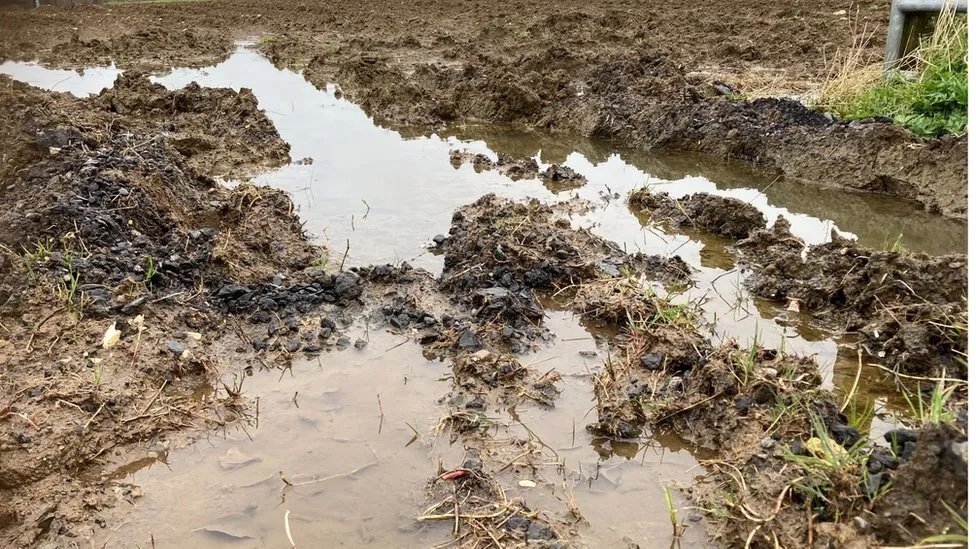Rain, Rain, Beautiful Rain
Ask someone what they associate with Ireland and they will soon mention potatoes. Apparently, the Irish were the first Europeans to accept the potato as a field crop and to embrace it as their staple food. Ask an Irish person what they associate with their own country and they may soon talk about the weather and, specifically, rain. Ireland, north and south, is a wet island.
An Irish Field (Credit: BBC NI)
Northern Irish potato farmers have had a difficult nine months or so. Rainfall has been unusually constant (even for Ireland) across all months, whether summer, autumn, winter or spring. Last July’s rain meant difficulties in harvesting the potatoes and a 10% lower than normal crop. As a result, Europe had a scarcity of potatoes in both quantity and quality. The current extended rainfall has prevented farmers from planting this year’s crop, even in traditionally dry areas. Planting may be delayed by 4-6 weeks. Again, this will lead to shortages and higher prices. The consumer is being affected but so are individual farming families as their livelihoods are made more precarious. It costs £3,000 to produce a hectare of potatoes and that must be recouped, plus a sizeable profit made.
Whilst climate change is resulting in too much rain in Ireland, 12,000 km away, its consequence is too little rain.
A Zimbabwean River
Zimbabwe is suffering drought. President Mnangagwa has declared the prolonged drought crisis a national disaster with 2.7 million people facing hunger. States of disaster have also been declared in neighbouring Zambia and Malawi and the World Food Programme say that 13.6 million people in southern Africa are currently facing crisis levels of food insecurity. It could be one of the worst droughts in recent decades. The lack of water has also hit electricity supply in Zimbabwe with Kariba hydroelectric facility under performing although only partly due to decreased rainfall.
Mnangagwa says, "Top on our priority is securing food for all Zimbabweans. No Zimbabwean must succumb to or die from hunger," And this is on top of the country’s shocking and crippling economic problems. Zimbabwe have just introduced a new gold-backed currency called the ZiG, standing for “Zimbabwe Gold”. Annual inflation reached a seven-month high in March of 55%. Citizens have 21 days to replace all their old inflation-hit notes for the new currency.
The annual level of precipitation in Zimbabwe has exhibited a consistent downward trend over the last few decades. There has also been a tendency towards late onset and early season cessation of ‘the rains’. This means the growing season is shorter and makes farmers’ decisions of when to plant and when to harvest more difficult. The ‘old ways’ can no longer be followed.
Oh, rain, oh, rain
Oh, rain, oh, rain
Beautiful rain
Don't disturb me
Beautiful rain
Oh, come, never come
Oh, come, never come
Oh, come to me beautiful rain
Songwriter: Joseph Shabalala
© Gallo Music Publishers
This Ladysmith Black Mambazo (South African male choral group) may indeed be a love song as some suggest but it alludes to rain and its extremes: “come, never come”. Farmers in Ireland and Zimbabwe may envy each other if they knew of each other’s very different plights at the moment; the Irish hoping that the rain would stop coming and Zimbabweans that the rain would have come for longer.
Climate change is a real thing, whatever its causes. World Development & Relief has partners in Zimbabwe, Ghana and Honduras who are working with rural communities to help them manage their water sources more efficiently, making sure that their precious rain is used to the full without harm to the environment.
Tim Dunwoody
World Development & Relief


